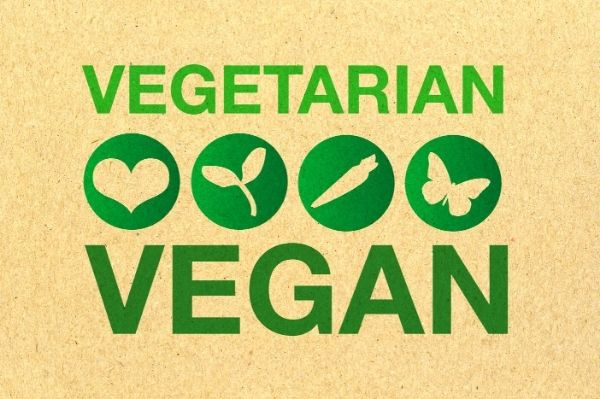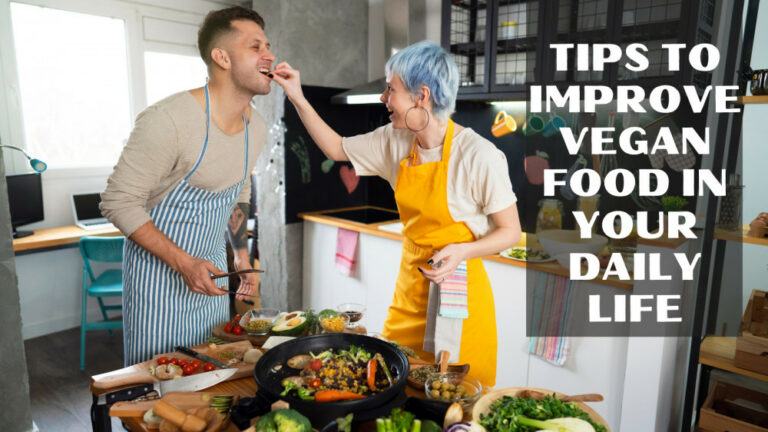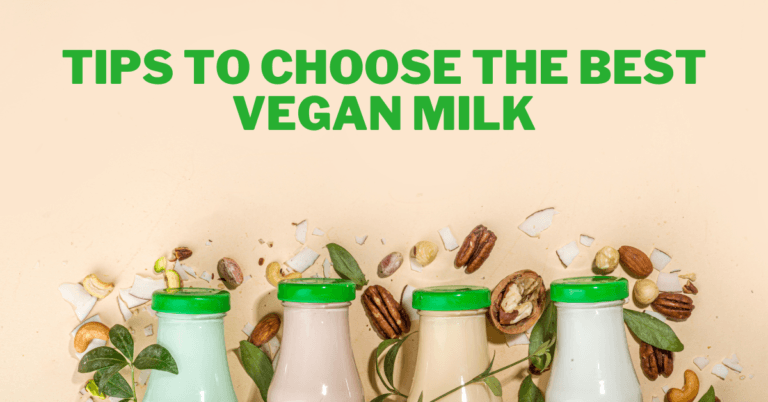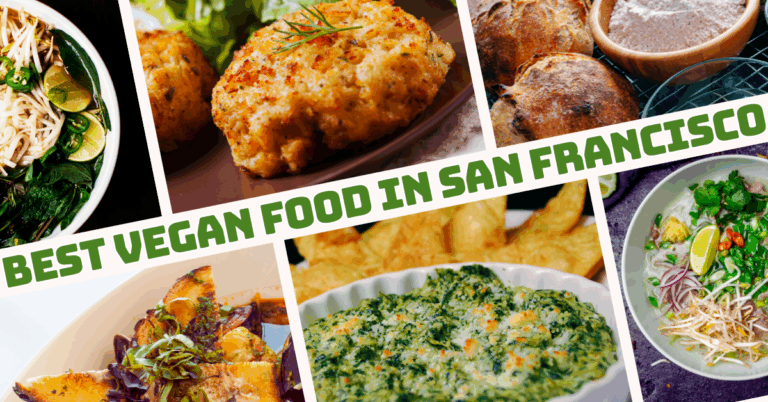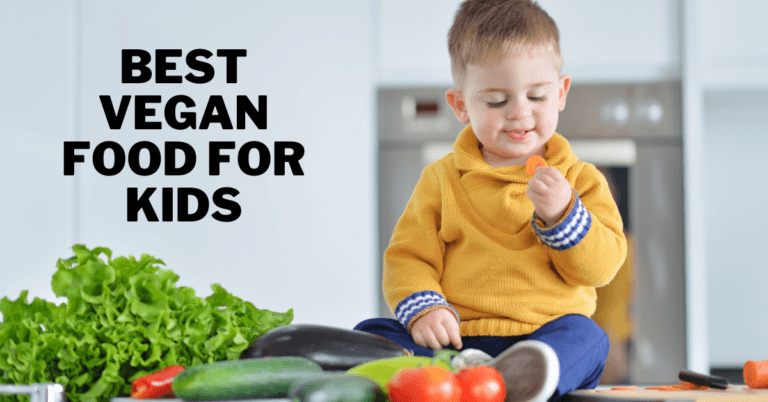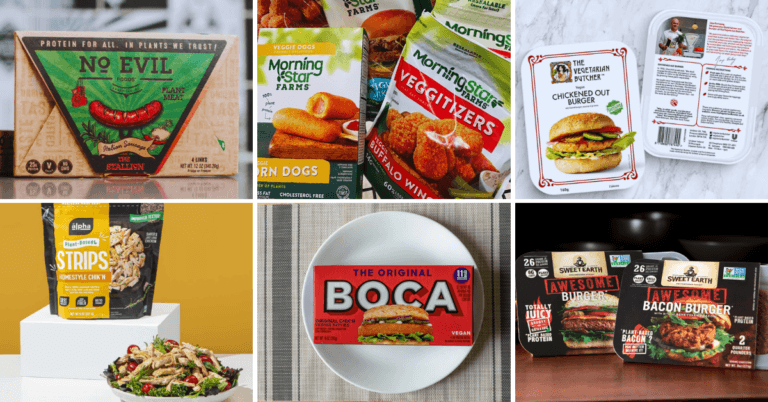What Are Non-Vegan Foods
What Are Non-Vegan Foods
Many individuals opt for a vegan lifestyle, which excludes all animal-derived products from their diet. Various factors, including ethics, environmental concerns, and health considerations, drive veganism.
Central to understanding veganism is recognizing the answer to: What are non-vegan foods?
These foods are derived from animals or involve animal exploitation in their production. From meat and dairy to seafood and eggs, non-vegan foods encompass many items not part of a vegan diet.
This article will explore non-vegan foods in detail, examining the various categories and discussing their implications for those following a vegan lifestyle.
By understanding what non-vegan foods entail, individuals can make more informed choices and align their dietary practices with their values.
A Guide To Non-Vegan Foods
Non-vegan foods, also known as animal-derived foods, are food products sourced from animals or involving animal exploitation in their production.
These foods are not considered suitable for consumption within a vegan diet, which avoids using animal products for ethical, environmental, and health reasons. Here are some examples of non-vegan foods:
1. Meat And Poultry
Meat and poultry are non-vegan foods with various types of animal flesh.
Beef, pork, lamb, chicken, turkey, and game meats are commonly consumed by individuals following non-vegetarian or non-vegan diets.
These animal-based products are obtained through the slaughter and processing of animals for human consumption.
Beef is derived from cattle, pork from pigs, and lamb from sheep. Chicken and turkey are popular poultry options.
Game meats refer to the meat of wild animals, such as deer, elk, or rabbit, hunted for food.
Meat and poultry production involves raising animals in farms or ranches, feeding them specific diets, and slaughtering them for their meat.
This process is associated with ethical concerns regarding animal welfare and the environmental impact of animal agriculture.
Consuming meat and poultry provides a source of animal protein and essential nutrients like iron, zinc, and vitamin B12.
However, excessive red and processed meat eating has been associated with a higher risk of numerous illnesses, such as heart disease, some malignancies, and obesity.
2. Seafood And Fish
Seafood and fish are non-vegan foods encompassing a wide range of aquatic creatures. This category includes fish species like salmon, tuna, cod, tilapia, and many others.
It also comprises shellfish such as shrimp, lobster, crab, prawns, and crayfish. Additionally, mollusks like oysters, mussels, clams, scallops, and squid are part of this group, along with other marine organisms like octopus and cuttlefish.
Seafood and fish are sourced through two primary methods: fishing and aquaculture. Fishing involves capturing wild fish and other aquatic species from oceans, seas, rivers, and lakes using nets, lines, or traps.
On the other hand, aquaculture refers to farming and cultivating fish and other marine organisms in controlled environments such as ponds, tanks, or ocean pens.
Consuming seafood and fish provides a rich source of protein, omega-3 fatty acids, and essential nutrients like iodine and vitamin D.
However, overfishing, destructive fishing practices and pollution from aquaculture operations can have significant environmental consequences, including the depletion of fish populations and the disruption of marine ecosystems.
Individuals following a vegan lifestyle choose to exclude seafood and fish from their diets for ethical and environmental reasons.
They opt for plant-based alternatives that offer similar nutritional benefits while reducing their impact on marine life and promoting sustainable food choices.
3. Dairy Products
Dairy products are non-vegan foods that are derived from the milk of mammals. The primary source of dairy is cows, but milk from other mammals like goats and sheep is also used to produce dairy foods.
This category includes various products such as milk, cheese, butter, yogurt, cream, and other milk-based derivatives.
Milk is obtained by milking the mammary glands of lactating animals. It is commonly used as a beverage or as an ingredient in numerous food products.
Cheese is produced through the curdling and fermentation of milk, resulting in various textures, flavours, and types.
Butter is made by churning milk or cream, while yogurt is produced through the fermentation of milk by beneficial bacteria. Cream refers to the fat-rich portion of milk that rises to the top.
Dairy products are known for their high calcium content and contribution to other essential nutrients like protein, vitamins (such as D and B12), and minerals.
However, dairy consumption has been associated with certain health concerns, including lactose intolerance, milk allergies, and an increased risk of certain health conditions like heart disease and certain cancers.
From an ethical standpoint, dairy production involves practices such as separating calves from their mothers shortly after birth, which raises concerns regarding animal welfare.
Environmental considerations related to dairy farming include greenhouse gas emissions, water usage, and land degradation.
4. Eggs
Eggs are non-vegan foods that are the reproductive cells of various animals, primarily chickens, ducks, quails, and other birds.
They are widely used in cooking, baking, and food production due to their versatility and binding properties.
The most popular egg consumed is a chicken egg, which may be found in various sizes and hues, including white and brown.
Some civilizations also eat duck eggs, which are bigger than chicken eggs. Quail eggs are more delicately flavoured and smaller in size.
Eggs are known for their high protein content and are often considered a complete protein source, as they contain all the essential amino acids the human body requires.
They also provide essential nutrients such as vitamins (B12 and D), minerals (such as iron and selenium), and healthy fats.
The production of eggs involves raising birds in farms or backyard settings and collecting their eggs for human consumption.
Concerns related to the egg industry include animal welfare issues, such as confined housing systems and the practice of culling male chicks in certain production methods.
5. Honey
Bees make honey from the nectar of flowers, a non-vegan food. Bees gather nectar, which they later regurgitate and evaporate to produce honey.
Bees use the honey kept in beehives' honeycombs as nourishment, especially in the winter when other food sources are sparse.
The collection of honey involves beekeeping practices, where beekeepers extract honey from the beehives and replace it with sugar water or other substitutes.
Beekeepers may use various methods to control the bee colonies, such as smoking or manipulating the hive to access the honey.
The debate around honey and veganism stems from the ethical considerations concerning beekeeping practices.
Some argue that honey production involves the exploitation of bees, as it disrupts their natural behaviour and can potentially harm the well-being of the colonies.
Beekeeping practices may also involve selective breeding of bees for desired traits or replacing queen bees. While opinions on honey's vegan status vary, many vegans avoid honey due to these ethical concerns.
They opt for alternatives like maple syrup, agave nectar, date syrup, or other plant-based sweeteners that do not involve animal products.
6. Gelatin
Gelatin is a non-vegan component made from collagen from animals. Animals, especially cows and pigs, have collagen in their connective tissues, skin, and bones.
Gelatin is created by a process that involves boiling animal parts to extract the collagen, which is then processed and dried into a powder form.
Gelatin is widely used as a thickening, stabilizer, or gelling agent in the food industry. It is commonly found in gummy candies, marshmallows, gelatin desserts, jelly, and dairy products.
It provides a unique texture and characteristic “jelly-like” consistency to these food items.
Using gelatin in food production raises concerns for those following a vegan lifestyle. It is derived from animal sources, making it non-vegan.
Additionally, gelatin production is often associated with animal agriculture practices, which can raise ethical considerations and environmental impacts.
7. Additives And Ingredients
Certain food additives and ingredients used in various food products may be derived from animals, making them non-vegan. These include specific colourings, flavourings, and thickeners.
Colours like cochineal or carmine, also known as E120, are derived from the bodies of female cochineal insects. These insects are crushed to extract a red dye used in various food and beverage products.
While these colourings are controversial and have raised ethical concerns, they are still used in some food items. Flavourings derived from animals include ingredients like anchovies, fish sauce, or other fish-based derivatives.
These ingredients often enhance the flavour of certain food products, such as sauces, dressings, or seasonings. Vegans avoid consuming these animal-based flavourings due to ethical considerations.
Thickeners like rennet can also be derived from animal sources. Rennet, an enzyme needed to curdle milk during the cheese-making process, is taken from the stomach lining of young calves.
While vegetarian or microbial alternatives are available, certain traditional cheese varieties may still contain rennet derived from animals.
To ensure their food choices align with a vegan lifestyle, individuals carefully read ingredient labels and look for plant-based alternatives or products labelled vegan or free from animal-derived ingredients.
This allows them to avoid additives and ingredients that are derived from animals.
8. Animal Fats
Animal fats are non-vegan ingredients derived from animals and are commonly used in cooking and food preparation. They include fats such as lard, tallow, and duck fat.
Lard is a type of fat derived from pig fat, particularly in the abdominal area. It is commonly used in baking, frying, and pastry-making due to its high smoke point and unique flavour profile.
Tallow, on the other hand, is a fat derived from beef or sheep fat. It is often used in cooking, frying, and as an ingredient in producing certain processed foods.
Duck fat, as the name suggests, is the fat obtained from ducks and is known for its rich flavour. It is used in cooking methods like roasting, frying, and sautéing to add a unique taste and crispiness to dishes.
Using animal fats raises ethical concerns for individuals following a vegan lifestyle. It involves the extraction and utilization of fats derived from animals, which conflicts with their commitment to avoiding animal-derived products.
Plant-based alternatives are substitutes for animal fats in vegan cooking and food preparation.
These alternatives include vegetable oils like olive oil, coconut oil, sunflower oil, and plant-based margarine made from oils and fats derived from vegetable sources.
9. Animal-Based Broths And Stocks
Animal-based broths and stocks are non-vegan ingredients used as flavour bases in various culinary applications, including soups, sauces, and gravies.
These broths and stocks are typically made by simmering animal bones, such as beef or chicken bones, along with meat and aromatic vegetables, in water over an extended period.
Beef broth is commonly prepared by simmering beef bones and meat, while chicken broth is made by simmering chicken bones and meat.
These processes extract flavours, nutrients, and gelatin from the bones and meat, producing a rich and savoury liquid.
Animal-based broths and stocks are widely used in culinary traditions worldwide to enhance the taste and depth of dishes.
They provide umami flavours and contribute to the overall complexity of flavours in soups, stews, sauces, and other savoury recipes.
Animal-based broths and stocks are unsuitable for individuals following a vegan lifestyle due to animal-derived ingredients.
Vegans seek plant-based alternatives to achieve similar flavour profiles and depth in their recipes.
Vegetable broths and stocks, made from simmering a combination of vegetables, herbs, and spices, provide a suitable alternative for vegan cooking and are widely available in stores or can be prepared at home using vegetable scraps and seasonings.
10. Non-Vegan Alcoholic Beverages
Non-vegan alcoholic beverages may contain ingredients derived from animals or have been processed using animal-derived substances.
This includes certain wines, beers, and spirits that may undergo filtration using non-vegan substances.
Some wines may be clarified using animal-derived fining agents in the winemaking process. Isinglass, derived from fish bladder, and gelatin are common fining agents used to remove impurities and clarify the wine.
These fining agents help remove sediment and improve the final product's appearance. However, this practice raises concerns for individuals adhering to a vegan lifestyle.
Similarly, some beers and ales may also be filtered using animal-based products. Isinglass, derived from fish, is often used to clarify beer and remove unwanted particles, resulting in a clearer appearance.
Other animal-derived fining agents, such as gelatin or egg whites, may also be used to clarify beer.
Certain spirits may also contain non-vegan ingredients. For instance, some cream-based liqueurs or creamy cocktails may contain dairy or cream, making them unsuitable for vegans.
Certain flavoured spirits may also incorporate animal-derived ingredients for flavourings or colouring purposes.
To ensure their alcoholic beverages align with a vegan lifestyle, individuals can seek out vegan-friendly alternatives.
Many breweries, wineries, and distilleries now offer vegan options, which are either naturally vegan or have undergone alternative filtration processes using vegan-friendly agents such as activated charcoal or plant-based fining agents.
11. Confectionery And Baked Goods
Confectionery and baked goods often contain non-vegan ingredients that make them unsuitable for individuals following a vegan lifestyle.
Examples of non-vegan ingredients commonly found in these products include milk chocolate, butter, eggs, and gelatin.
Milk chocolate combines cocoa solids with milk powder or condensed milk. The addition of milk gives milk chocolate its creamy and smooth texture.
However, the use of milk makes it non-vegan as it is derived from animal sources. Vegan alternatives such as dark chocolate or those made with plant-based milk substitutes like almond or coconut milk are available to cater to individuals following a vegan diet.
Butter, a common ingredient in many baked goods, is derived from animal milk and contains dairy. It adds richness and flavour to cookies, pastries, and other baked treats.
Vegans avoid butter and choose plant-based alternatives like vegetable margarine or oils to achieve their baked goods' desired texture and flavour.
Baking often uses eggs to provide structure, moisture, and binding properties. They can be found in various desserts, cakes, and cookies.
Vegans seek egg substitutes such as applesauce, mashed bananas, flaxseed meal, or commercially available egg replacers to replace eggs in their baking recipes.
Gelatin, a common ingredient in jellies, marshmallows, and certain desserts, is derived from animal collagen. It serves as a thickening or gelling agent.
Vegans avoid gelatin products and instead opt for plant-based alternatives or gelatin-free versions of these confectionery items, which are becoming more widely available.
Individuals carefully read ingredient labels or seek out specifically labelled vegan options to ensure that confectionery and baked goods align with their vegan lifestyle.
An increasing range of vegan-friendly candies, chocolates, and baked goods is available, allowing vegans to indulge in sweet treats without compromising their ethical principles.
12. Processed Foods
Processed foods, including snack foods, ready-made meals, and convenience products, can contain hidden non-vegan ingredients.
These products often undergo extensive processing, which may involve the addition of animal-derived additives.
Certain food colourings, such as cochineal or carmine, are derived from insects and used to enhance the colour of food products.
These additives may be found in various processed foods, including candies, beverages, and desserts.
Similarly, some flavour enhancers, like monosodium glutamate (MSG), can be derived from animal sources, particularly fish or shellfish.
Emulsifiers, used to improve texture and stability in processed foods, can also be non-vegan. Some emulsifiers may be derived from animal fats or proteins.
These additives are commonly found in many processed foods, including sauces, dressings, baked goods, and spreads.
When consuming processed foods, it's important to carefully read ingredient labels to identify non-vegan additives or hidden animal-derived ingredients.
Fortunately, there is a growing trend in the food industry to provide clear labelling, including vegan certifications, making it easier for individuals to identify suitable options.
Conclusion
In conclusion, non-vegan foods encompass a variety of products derived from animals or containing ingredients sourced from animal origins.
It is essential to be aware of these non-vegan foods when following a vegan lifestyle or accommodating dietary preferences.
By understanding what constitutes non-vegan foods, individuals can make informed choices and seek alternatives that align with their ethical beliefs and dietary requirements.
Choosing plant-based alternatives empowers individuals to embrace a vegan lifestyle while promoting animal welfare, environmental sustainability, and personal health.
I trust you enjoyed this article about What Are Non-Vegan Foods? Please stay tuned for more blog posts to come shortly. Take care!
JeannetteZ
>>> Please click here to read my Vegan Travel Guides To World Destinations <<<
>>> Want To Learn How To Create Delicious, Cruelty-Free, Healthy AND 100% Vegan Meals? Try These Awesome Vegan Cooking Courses With A Free 7-DAY MEMBERSHIP<<<
Your Opinion Is Important To Me
Do you have thoughts, ideas, or questions? I would love to hear from you. Please leave me your questions, experiences, and remarks about the What Are Non-Vegan Foods article in the comments section below. You can also reach me by email at Jeannette@LivingTheVeganLifestyle.org.
Disclosure
This post may contain affiliate links. I earn from qualifying purchases as an Amazon Associate and other affiliate programs. Please read my full disclosure.
Here are links to some of my favourite articles:
Potential Health Benefits Of Veganism
Best Vegan Guide To Clothing And Apparel
Best Vegan Detox And Cleansing Diets
Best Vegan Diet For Healthy Glowing Skin














